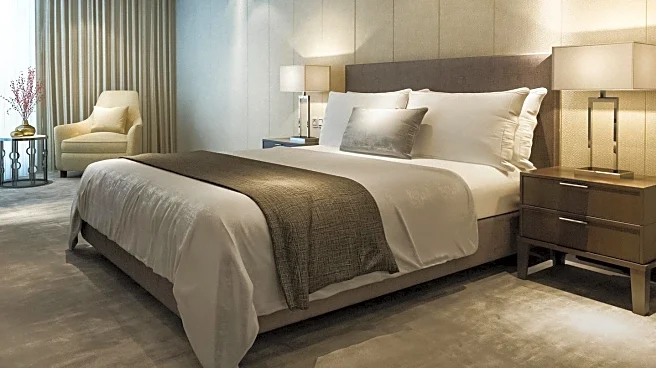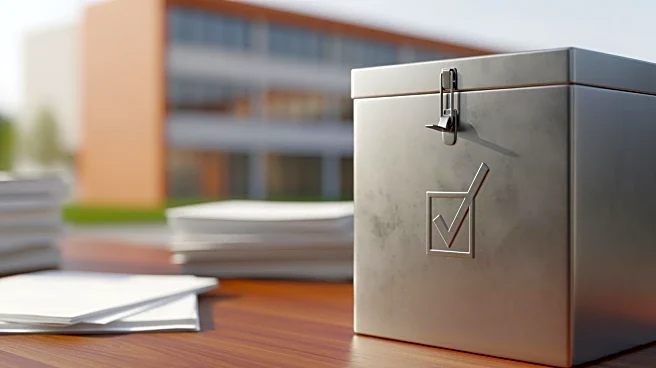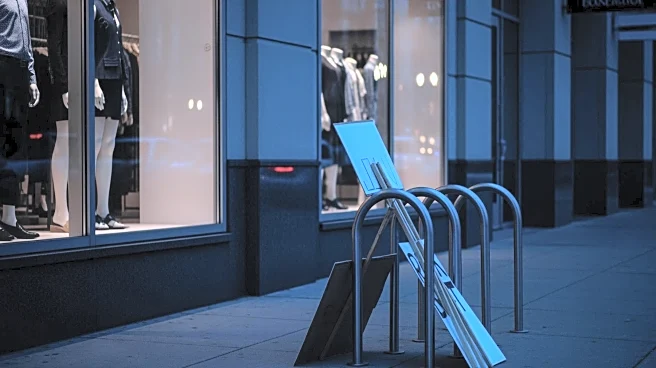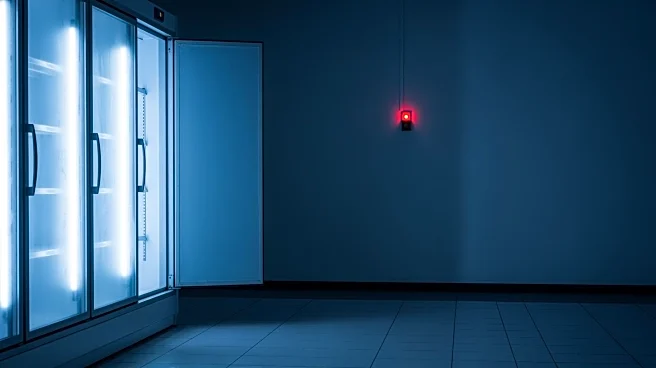What's Happening?
The hospitality industry is undergoing a significant transformation with the advent of 'smart hotel rooms,' which are reshaping guest experiences from booking to check-out. According to the '2025 Hotel Room Innsights' report, based on a survey of over 450 hotels globally, 56% of hotels feel pressured to keep up with rapidly evolving technology to meet guest expectations. Innovations such as smart lighting systems, AI-driven concierge services, and advanced bathroom technologies are becoming standard. However, the report emphasizes the importance of balancing these technological advancements with the 'human touch' that guests still value. Many hotels are adopting 'ComfortTech,' focusing on practical technologies that enhance comfort and convenience, such as high-speed Wi-Fi, smart TVs, and customizable lighting. Despite the rise of technology, 70% of hotels report that guests prefer direct interaction with staff during check-in, highlighting the continued importance of personal service.
Why It's Important?
The integration of smart technologies in hotel rooms is crucial for the hospitality sector as it seeks to enhance guest satisfaction and operational efficiency. The shift towards smart hotel rooms reflects broader trends in consumer expectations for convenience and personalization. Hotels that successfully implement these technologies can differentiate themselves in a competitive market, potentially increasing guest loyalty and revenue. However, the challenge lies in ensuring that technology complements rather than replaces human interaction, which remains a key component of the hospitality experience. The emphasis on sustainable technologies, such as energy-efficient systems and water-saving devices, also aligns with growing consumer demand for environmentally responsible practices. As hotels navigate these changes, they must carefully balance innovation with the personal touch that defines hospitality.
What's Next?
Looking ahead, hotels are expected to continue investing in technologies that offer greater personalization and efficiency. The Innsights report predicts increased adoption of AI-driven solutions, such as real-time language translation and energy-saving automation systems, as well as robotic solutions for food preparation and cleaning. These advancements aim to create intuitive, user-friendly environments that anticipate guest needs. However, hotels must ensure that these technologies remain accessible and do not overwhelm guests. The future of smart hotel rooms will likely involve a careful balance between technological sophistication and ease of use, ensuring that guests can enjoy the benefits of innovation without sacrificing the personal service they value.
Beyond the Headlines
The rise of smart hotel rooms also raises ethical and cultural considerations. As technology becomes more integrated into the hospitality experience, issues of privacy and data security become increasingly important. Hotels must ensure that guest data is protected and that technologies are used responsibly. Additionally, the cultural shift towards technology-driven experiences may impact the traditional hospitality model, which has long been centered on personal interaction and service. As hotels navigate these changes, they must consider how to maintain their unique brand identity and service ethos in a rapidly evolving landscape.











